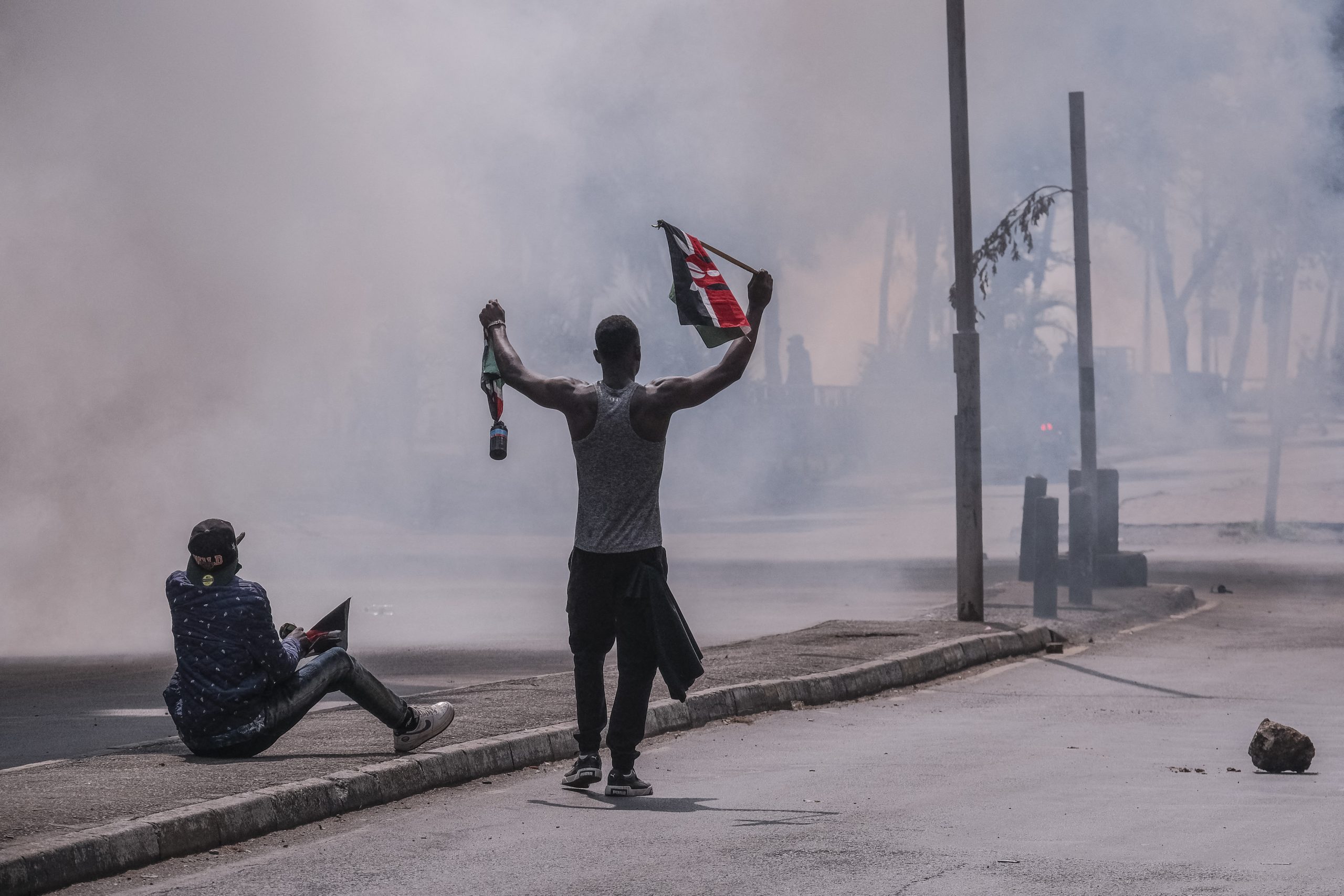The Kenyan government ordered TV and radio stations to immediately stop broadcasting protests on Wednesday, marking a year since massive anti-government demonstrations.

“This is therefore to direct all television and radio stations to stop any live coverage of the demonstrations forthwith,” it said in a statement.
Protesters are marking a year since the peak of demonstrations over the economy that saw at least 60 people killed by security forces.
The initially peaceful anniversary marches turned violent with protesters engaged in running battles with police, who flooded the streets with tear gas and sealed off government buildings with barbed wire.
There was outrage online over the live broadcast ban.
Most Kenyan media appeared to be continuing with live coverage despite the order.
The Standard Group, which runs TV, radio and a newspaper, said in a statement that it was an attempted “news blackout” and that it would continue broadcasting.
It said it had information that the Communications Authority had “ordered signal carriers to deplatform any media house doing live broadcasts”.
The Standard Group said “similar threats” were made at the height of the 2024 protests.
Amnesty International condemned the ban, saying “silencing the press is not the solution”.






